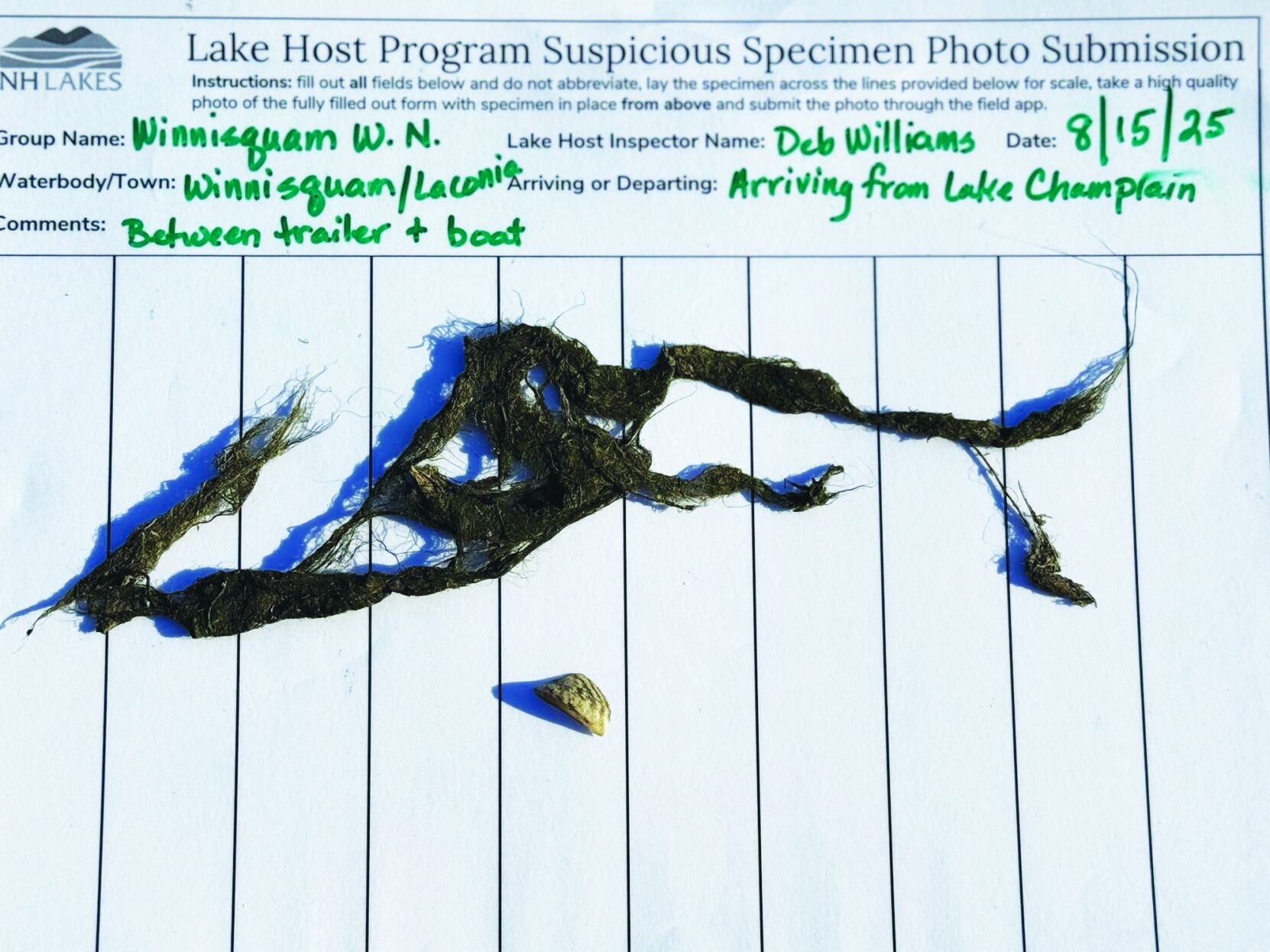A vigilant Lake Host, Deb Williams, intercepted a zebra mussel and plant fragments on a boat about to enter Lake Winnisquam, thwarting a potentially devastating invasion. Her discovery on August 15 underscores the importance of continued community efforts to keep invasive species at bay.
Lake Host thwarts aquatic invasive species from entering Winnisquam

Key Takeaways:
- A single zebra mussel was stopped from entering Lake Winnisquam
- Plant fragments were also discovered, illustrating multiple invasion threats
- Lake Host Deb Williams acted quickly during an August 15 boat inspection
- The Winnisquam Watershed Network supports such efforts to protect local waters
- Ongoing vigilance is essential to safeguarding Laconia’s ecosystems
Background on Lake Winnisquam and the Invasive Species Threat
Lake Winnisquam is a cherished part of the Laconia region, known for its natural beauty and vibrant ecosystem. However, with extensive recreational boating, the lake remains vulnerable to the unintentional introduction of non-native organisms. Zebra mussels, in particular, can quickly colonize and disrupt local environments, making swift prevention efforts critical.
The August 15 Discovery
On August 15, Lake Host Deb Williams performed a standard boat inspection at Lake Winnisquam’s shores. What seemed like a routine check became a pivotal moment for conservation: She discovered a zebra mussel clinging to a boat, along with stray fragments of aquatic plants. By intercepting them, Williams prevented these invasive organisms from establishing a foothold in the lake.
Role of the Winnisquam Watershed Network
For Williams and the Winnisquam Watershed Network, thwarting invasions is a familiar mission. The organization fosters collaboration among volunteers, residents, and officials to ensure that the lake remains thriving and healthy. Lake Hosts undergo training to identify threats like zebra mussels and quickly halt their spread.
Why Prevention Matters
Zebra mussels do more than just hitch rides on unsuspecting vessels; they can severely disrupt lake ecosystems if left unchecked. These resilient shellfish reproduce rapidly, clog water intake systems, and outcompete native species. Meanwhile, plant fragments can root and grow in new habitats, altering food webs and habitat structures. By stopping a single mussel and a handful of plant strands, conservationists can avoid costly and lengthy remediation down the road.
Looking Ahead
Though Deb Williams’ successful interception may seem like a small victory, it reflects the larger effort of local groups and volunteers committed to marine conservation. The Winnisquam Watershed Network continues to oversee boat checks and public education, reminding the community that vigilant, everyday actions can protect the lake’s future.











